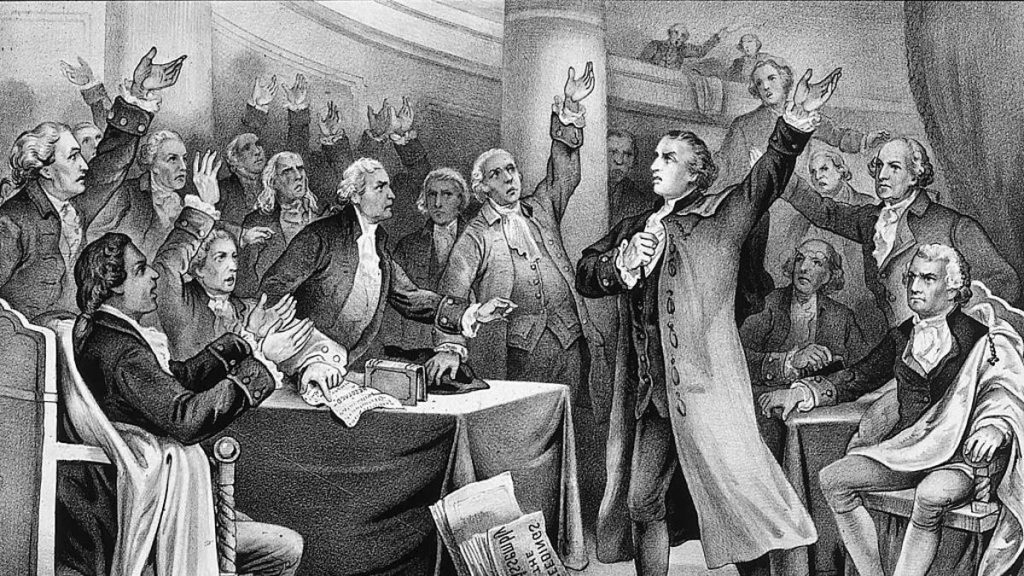Imagine stepping back into the early 1800s, a time when the young United States was still ironing out the kinks in its political system. One of the most significant adjustments came with the Twelfth Amendment, a change that reshaped the very foundation of presidential elections. Before this amendment, the process was fraught with tension and confusion, often resulting in a President and Vice President who were political rivals. Picture the chaos, the heated debates, and the eventual realization that something had to give. Enter the Twelfth Amendment, ratified on January 14, 1804, a pivotal moment that brought about a crucial shift in the Electoral College's operation. This change wasn't just a minor tweak; it was a monumental decision that ensured the President and Vice President would share political ideologies, smoothing the path for a more unified executive branch. Ratification Day isn't just another date on the calendar; it marks a turning point that solidified the strength and stability of the United States' electoral process.
Key Takeaway
Timeline
Day Activities
-
Ratification Day celebrations kick off with educational seminars diving deep into the historical significance of the Twelfth Amendment. Schools and community centers host these talks, where historians and political scientists unravel the complexities of early American politics and the pivotal role this amendment played in shaping the nation's electoral process.
-
Throughout the day, reenactments of the ratification process take center stage in various historical sites across the country. Participants dressed in period attire recreate the debates and discussions that led to the adoption of the Twelfth Amendment, offering spectators a unique glimpse into the past and a better understanding of the challenges faced by the founding fathers.
-
As the sun sets on Ratification Day, communities come together for a night of patriotic festivities. Fireworks light up the sky, symbolizing the enduring legacy of the Twelfth Amendment. Families and friends gather in public parks and squares, sharing stories of American resilience and celebrating the continuous evolution of democracy in the United States.
Why We Love This Day
- Streamlining the Electoral Process
Before the Twelfth Amendment, presidential elections were a bit of a mess, with the potential for a President and Vice President from rival parties ending up in office together. Imagine trying to run a race tied to someone who wants to go in a different direction! Ratification Day celebrates the end of that political tug-of-war by introducing separate ballots for these two top offices, making the whole process smoother and less like a recipe for disaster.
- Unity in the Executive Branch
What's better than a team that works well together? Not much, especially when it comes to running a country. Ratification Day marks the shift towards ensuring the President and Vice President share political ideologies, paving the way for a more unified executive branch. This change meant fewer headaches and more harmonious governance, something everyone can get behind.
- A Historical Pivot Point
Ratification Day isn't just another date on the calendar; it's a celebration of a pivotal moment in American history. This day commemorates a significant change that has influenced every presidential election since 1804. It's like the day we decided to put wheels on luggage: a simple tweak, but boy, did it make a difference! Celebrating this day is a nod to the wisdom of past generations in refining our democracy.
Past & Future Dates
| Month | Day | Year |
|---|---|---|
| JANUARY | 14 | 2022 |
| JANUARY | 14 | 2023 |
| JANUARY | 14 | 2024 |
| JANUARY | 14 | 2025 |
| JANUARY | 14 | 2026 |
| JANUARY | 14 | 2027 |
| JANUARY | 14 | 2028 |
FAQ
What is significant about January 14th?
The Continental Congress ratified the Treaty of Paris on January 14, 1784, officially establishing the United States as an independent and sovereign nation.
What is special about January 14, 2024?
National days on January 14th, 2024 include National Dress Up Your Pet Day, Old New Year's Day, International Kite Day, National Hot Pastrami Sandwich Day, and National Organize Your Home Day, among others.
What is the national day for January 14th?
On January 14th, folks celebrate several national days including National Dress Up Your Pet Day, Old New Year's Day, International Kite Day, National Hot Pastrami Sandwich Day, and National Organize Your Home Day.
What happened on January 14, 1784?
On January 14, 1784, the Treaty of Paris was ratified by the Congress of the United States in the Senate Chamber of the Maryland State House, formally ending the Revolutionary War and marking the beginning of the United States' independence.
